|
The term "detox" is thrown around a great deal, especially this time of year when many people have set New Year's resolutions and many of them have to do with improving health. Detoxing can mean different things to different people. Some detox plans are beneficial and some may do more harm than good. So let's explore the general intention of a detox and figure out whether it's the right thing for you. How can you tell if you might benefit from a detoxification program?*This is article is meant for educational purposes only. You shouldn't use this information to diagnose. Always see your doctor before making any major changes. Especially, if you're taking medication.  If you're experiencing any of the following symptoms, they might be telling you that your natural detoxification systems are sluggish or overburdened.*
These aren't the only symptoms of an overburdened detoxification system, but they are some of the most common. What does it mean to detox?To detox means simply to eliminate toxins from the body. As I mentioned several weeks ago, a toxin is a substance that may be harmful to your body. In the past few weeks, I've shared many ways to avoid household toxins and environmental toxins. I also shared how in this modern world it's impossible to completely escape toxin exposure, no matter how hard you try! So even though the body naturally detoxifies on a continuous basis, toxic accumulation can occur from the diet, the environment, and drug or medication usage.  There are two ways to support the body's natural detoxification process on a regular basis:
How does your body detox naturally? And which organs are most important in detoxification?The intestines, liver, gut microbiome, kidneys, lungs, lymph system, and skin are all important detoxification organs. When supporting natural detoxification, the healthy functioning of the various organs of metabolism and elimination is important. I'll start with the gut, or intestinal tract, since compromised gut health reduces the capacity for metabolic detoxification. The Intestines and Gut Microbiome 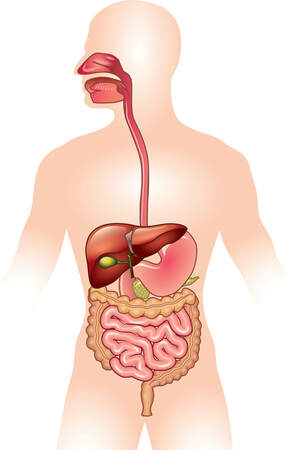 From the mouth to the colon, the job of the intestines is the digestion of nutrients and the elimination of toxins. The digestion process of the complex molecules of our food begins in the mouth, continues in the stomach and intestines, and are transformed in the process into simple molecules cells can absorb. Once digestion is complete, the nutrients and toxins are transported through the intestinal mucous membranes to the liver. After detoxification by the liver, the nutrients are redistributed into the blood stream, and the toxins, chemicals, drugs, heavy metals, and excess sex hormones are deposited into the bile. In the bile, these substances move into the small intestine and continue through to the stool. If the mucous membranes of the small intestines are healthy, they will absorb the well-digested, prepared nutrients into the blood stream, while large, incompletely digested molecules and toxic residues remain to be excreted as fecal matter. Toxic substances should go through the intestines to be processed by the liver. However if there is a breakdown in the intestinal lining, or imbalance in the gut microbiome, then harmful substances can pass through into the blood stream. The gut microbiome plays a role in detoxification in three ways.
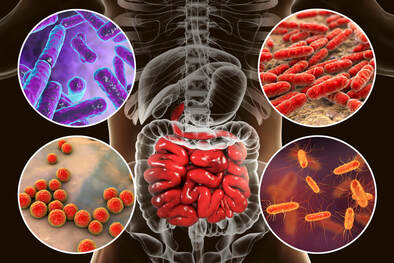 Specific gut bacteria can help or hinder the detoxification process. For example, some microbes may help by breaking down bile acids and cholesterol. References. Other bacteria can hinder the detox process. In a diet that's high in fat from animal products such as red meat, eggs, and fish, a type of gut bacteria can create a chemical called trimethylamine, or TMA which the body converts to TMAO or trimethyl-N-oxide in the liver. TMAO can lead to glucose intolerance and an increase in fatty tissue inflammation. Reference High amounts of TMA in the body are associated with heart issues and metabolic disease. Please note that this is an issue of quantity of animal fat consumed. Once again, balance is key! In fact, olive oil and red wine contain a compound that has been shown to moderate the process. Reference. Resveratrol, found in red wine and grapes also inhibits TMAO. Certain foods high in antioxidants, polyphenols, and even prebiotics, promote the growth of the population of beneficial bacteria in your gut, therefore supporting the detoxification process. The Liver 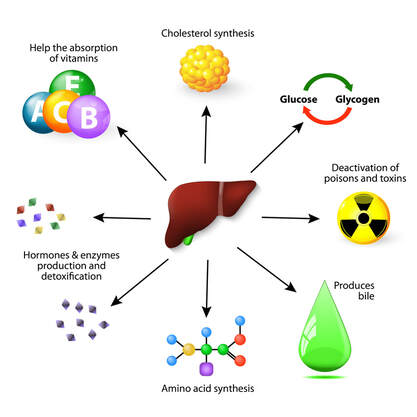 The liver is known as the main detoxifying organ. All of the toxic substance you eat, drink, inhale, or absorb through the skin, pass through the liver for filtering and removal. The liver detoxifies in two phases. First, the liver takes toxins and converts them into either active or inactive forms. Second, the toxins are bound to molecules that will carry them out of the body, either through the colin or urine. During stressful periods, when the liver is preoccupied with converting complex sugar into simpler sugar to use for fight or flight, it isn't focused on detoxification. If this continues too long, or stress is chronic, the liver can become overloaded and get backed up and can push toxins back into the blood stream, where they might be deposited for storage in the fat tissues. The Kidneys The kidneys purify the blood from harmful substances, such as toxic medications or other chemicals, along with cell metabolism byproducts. It filters them out of the blood, and excretes them in the urine. If the membranes of the kidneys are damaged by irritating substances, or overburdened by too high a concentration of waste products, especially by chemical or synthetic substances that cannot be properly filtered, the kidneys don't optimally purify the blood. Hydration is also important to the proper functioning of the kidneys, as the volume of blood passing through the kidneys shouldn't be too high or low. The Lungs 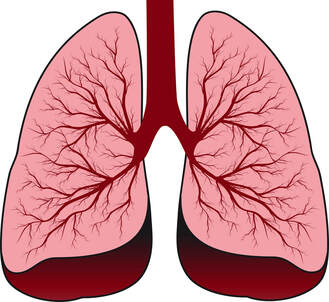 The lungs mainly evacuate toxins in the form of carbonic gas, but may also excrete phlegm. While the healthy membranes of the lungs' alveoli generally don't let solid waste penetrate, if the alveoli are exposed to constant irritation from infectious microbes and other irritants, they may become porous and act as an emergency exit for toxins that the liver, kidneys, and intestinal tract didn't manage to eliminate. These substances are transported by the bloodstream towards the lungs and bronchi. They squeeze through the alveoli and are coughed up as phlegm. The phlegm consists of microbes and products of their own activity, but also waste from insufficient digestion and excretion. Eliminating toxins from your environment, avoiding artificial fragrances, reducing exposure to polluted air, exercising, and eating a nutritious diet all support the health and "natural cleaning" of the lungs. The Skin Next up is the skin! The skin is the body's largest organ of protection. If the liver, kidneys, and lungs are eliminating waste and toxins insufficiently, then the job goes to the skin. The skin can play an important role in the elimination of toxins and can actually assist the kidneys in doing their work. The skin evacuates waste products known as crystals from the body. Crystals are soluble in liquids and discharged through sweat glands in the form of sweat. Crystals are residues of the metabolism of food rich in protein. Urea and uric acid are also expelled. The expulsion of crystals may also be the result of excess sugar or especially acidic food. Toxins and waste products can also be eliminated in the form of rashes, which is why skin problems can often come from issues within the body as much as the outside environment. The Lymph 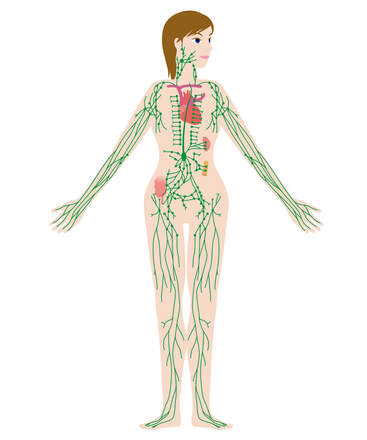 The lymph also plays a crucial role in detoxification and defense. About two liters of lymphatic fluid circulates in lymphatic vessels that cover the body from the top of the head to your toes. The tiniest vessels are lymphatic capillaries. They lead to larger lymphatic vessels, which then lead to the largest vessels which are the lymphatic glands. The lymphatic glands have many tasks, but generally aim at defending the body and purifying the bodily fluids to maintain their proper function. They are stations where infectious agents are filtered and white blood cells are produced. If the work of the lymph glands, or nodes, are insufficient, the filtering, degradation, and transport of waste product will be impeded and the body will be overwhelmed with toxic metabolites and toxins. There are ways to support the lymphatic system, with massage, dry brushing, exercise, and of course eliminating as many toxins in your food and environment as you can. You're probably starting to see that all of these systems of detoxification are related and work together to remove toxins and waste products from your body. Now let's take a look at why your body's natural detoxification systems might not be keeping up. What gets in the way of the body's natural detox process?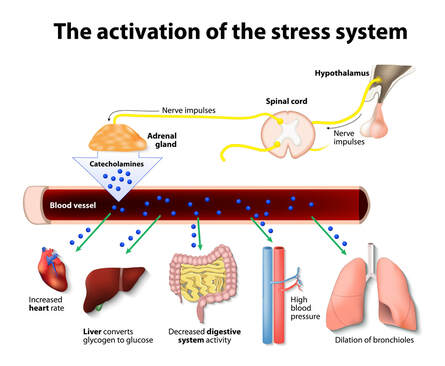 While the body does detoxify naturally, there are many situations that get in the way of the body's detoxification process, including:
Some of these we can easily do something about, and some we can't. Unfortunately, our genetics do influence the way our body reacts to toxins. Some people may be bothered by certain toxins and others don't seem to be. But through food you can reprogram how your genes function, even if you can't change the genes themselves. So while the body's natural detoxification systems may have been enough back when we were hunters and gatherers and weren't continually exposed to toxins, in our modern world, it might not be enough. What are the benefits of a detox program? There are many benefits to detoxing*, including:
What are the potential downsides of a detox program?A detox program that involves subsisting on only water or juice for a significant period of time can make the body even more toxic, especially if a person has a large toxic burden, or build up. The rate of fat burning increases, releasing accumulated wastes, such as toxins from chemicals and pesticides into the blood stream. With a lot of fat being burned this results in more toxic waste circulating in the body, where it's free to cause more damage. If a detox involves calorie restriction, you may also have an increase in the stress hormone cortisol. This will actually do the opposite of detoxing for many people and may also cause sleep problems. It's safer to be slow and steady, and release toxins at a rate that the body can properly eliminate them. How do you choose a detox program?A detoxification program that uses a healthy, sustainable strategy that helps balance your hormones and brain chemistry and doesn't put your body into a starvation response is important. The best detox programs don't restrict calories. All calories are not created equal -- 1000 calories from fruits and vegetables have a very different effect on your body than 1000 calories from soda. Changing your food is beneficial, restricting your calories is generally not. A good detox program focuses on eating fresh, whole food, while eliminating most processed foods, and other foods that can be hard on the body's systems, such as alcohol and caffeine. A good detox program should also include light exercise and self-care practices aiming to support the lungs, skin, and lymph system. A good detox program should not make you feel deprived, or hungry. The idea is to remove as many toxins from your diet and environment as possible, and replace them with healthy alternatives. Ideally you should feel like you're taking care of yourself! There are many things to consider when choosing a detoxification program. Ideally, the program will introduce or reintroduce you to healthy sustainable eating, exercise, and self-care habits. Click the photo above, to join me in the 10-Day Total Mind & Body Detox Plan. While you can do it any time, I'll be leading a group through the detox coming up soon! Have you had experiences with detox programs? Have they been positive or negative? Please comment below!
1 Comment
1/23/2019 02:39:31 pm
Never detoxed
Reply
Leave a Reply. |
Click below to join my FREE Facebook Group-
Women's Wellness Circle: Create Your Extraordinary Life AuthorHi, I’m Crystal! If you'd like to access my Farmer's Market Friday posts from 2018, click here!
Categories
All
|

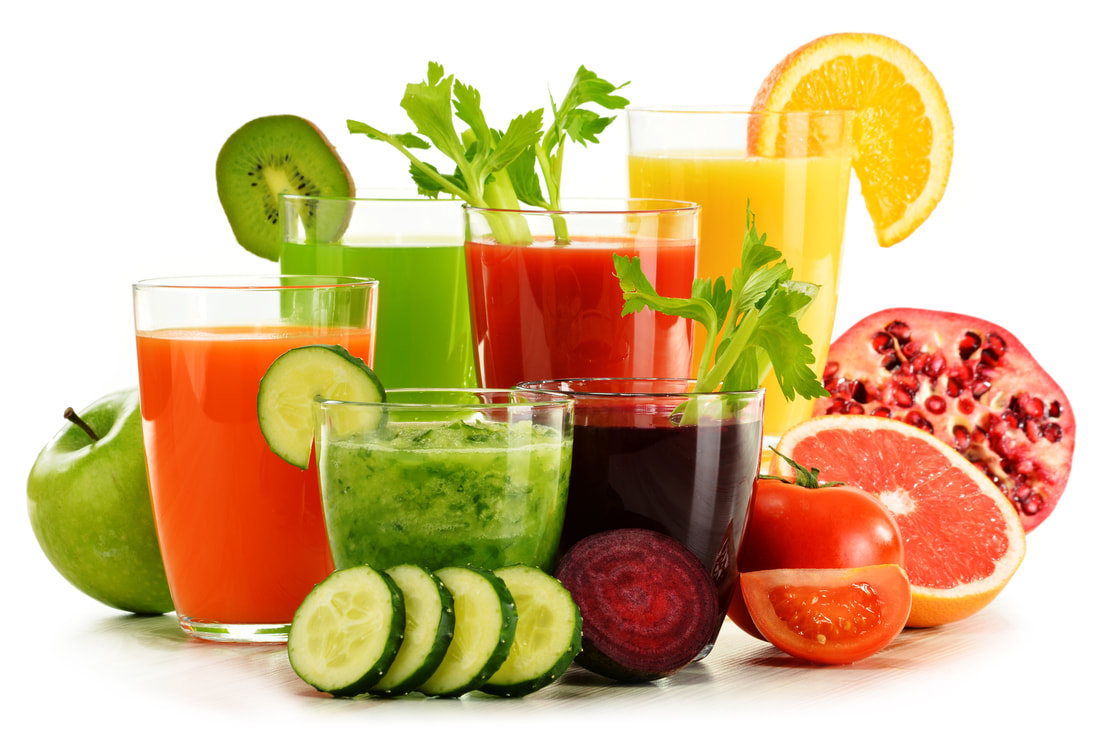
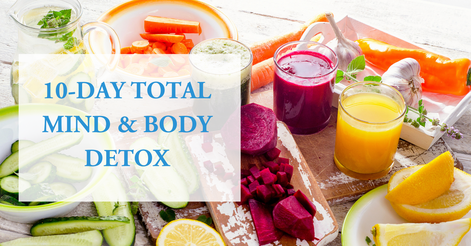
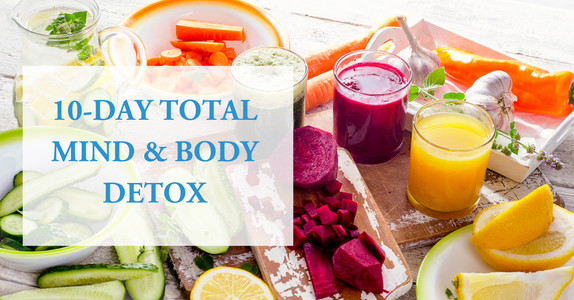

 RSS Feed
RSS Feed